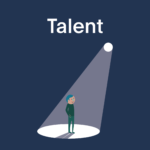Addressing the Talent Crisis: Avoiding the Top 3 Hiring Mistakes of 2023
As organizations grapple with the challenges of a post-pandemic job market and the potential for an economic recession, HR professionals are confronted with unique hiring obstacles. In an interview with Eric Termuende, a renowned keynote speaker and author, HRD highlights the three most common mistakes organizations make during the hiring process.
Mistake #1: Hiring Too Hastily
Termuende emphasizes that the most significant mistake employers make is rushing the hiring process. While it’s crucial to fill positions promptly, overlooking cultural fit can have detrimental effects. Simply focusing on skills, requirements, and education without considering how an individual aligns with the organization’s work style can lead to high turnover and dissatisfaction. Ensuring cultural alignment is crucial in the evolving landscape of remote and hybrid work.
Mistake #2: Neglecting Employee Involvement
Incorporating existing team members into the recruiting process is vital, according to Termuende. While recruiters and HR professionals play essential roles, involving colleagues and co-workers provides valuable insights and enhances engagement. As employees spend significant time with their teammates, their perspective on a potential hire’s fit within the team is invaluable. Including them in the process allows for better evaluation of whether a candidate will be the right fit.
Mistake #3: Overemphasizing Perks and Benefits
Termuende cautions against relying heavily on perks, benefits, and signing bonuses as the primary attraction for candidates. While these incentives may initially capture attention, they cannot compensate for a mismatched workplace culture. Organizations must recognize that workplace experience and cultural alignment have long-term significance compared to short-term perks or financial benefits. Candidates seek an overall workplace experience that aligns with their values and needs.
Hiring Mindfully in a Talent Shortage
From the candidate’s perspective, Termuende advises conducting thorough research on potential employers. By asking the right questions and demonstrating a genuine understanding of the organization, candidates can differentiate themselves from the competition. For employers, it’s crucial to prioritize culture fit and experience during the recruitment process. Culture fit holds increasing importance as work dynamics continue to evolve. Organizations must ensure that the work style aligns with the individuals they hire to prevent employees from leaving in search of a better fit.
Navigating the talent crisis requires a mindful approach to hiring. By avoiding these common mistakes, organizations can enhance their recruitment strategies and build a workforce that aligns with their culture and values.
Top of Form


































